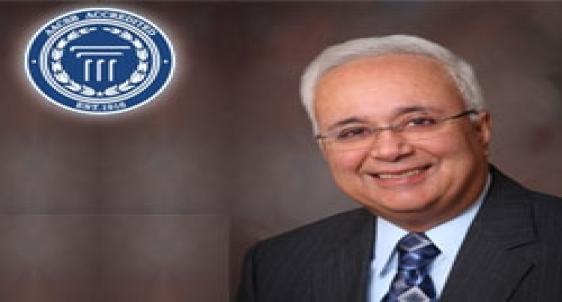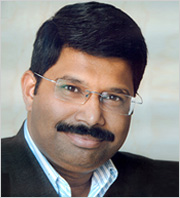
In an exclusive interview with Amrita Das of MBAUniverse.com, John J. Fernandes, President and Chief Executive Officer of AACSB International, discusses the rationale behind opening AACSB Asia Headquarters in Singapore and talks about the focus of AACSB in the Asian region, particularly in India.
The Association to Advance Collegiate Schools of Business (AACSB) International announced the opening of its Asia Headquarters in Singapore on June 4, 2009 with an aim to provide increased professional development opportunities for MBA schools in the Asian region. The AACSB currently accredits 568 MBA schools across 33 countries. However, until now, none of the MBA schools in India enjoy an AACSB accreditation. While talking to MBAUniverse.com, Fernandes, however, revealed that some Indian schools have begun the process. He pointed out that in today’s age, international benchmarking helps a school to project and position itself in the global market. It also helps attract more international students and increase international placements, he added.
Excerpts from the MBAUniverse.com interview:
Q. What is the rationale behind setting up AACSB in Singapore?
A: Growth in management education is critical for Asia, particularly India, and ensuring this process is based on quality is of vital importance to AACSB. In the recent years, management education has grown exponentially and today the Asian region hosts 40% of the world’s MBA schools. With such a large concentration throughout the region – particularly in India and China – Singapore’s centricity serves as an ideal hub for AACSB to provide better regional opportunities to the institutions. By having a team on the ground in Asia, MBA schools will have the opportunity to speak with a ‘local’ staff familiar with trends in management education specific to their region. This increased level of accessibility will provide our member and accredited institutions with a wider range of guidance.
Q: What is the mission of AACSB?
A: The mission of AACSB is to advance quality management education worldwide through accreditation and thought leadership. Our membership represents nearly 1,200 educational institutions and businesses across 71 countries. Becoming part of this elite group, comprising less than 5 per cent of the world’s MBA schools, is a goal that most aspire to reach. The Hong Kong University of Science and Technology and The Chinese University of Hong Kong became the first MBA schools in Asia to earn AACSB accreditation. Since then, the number has grown to 20. As of May 2009, membership from Asian MBA schools, too, has increased over three-fold since 2003 from 31 members to 112. We are now striving to focus more on increasing the membership base particularly in India and China.
Q. How does AACSB look at Asian management education sector?
A: Asia has become an area of significant economic impact and a key player in the global economy – resulting in a critical need for highly qualified business leaders produced by world class business schools. Across Asia, MBA schools continue to be very diverse as they evolve and strive to meet the needs of the rapidly changing global economy. We realize that Seoul National University in South Korea is not the same as Tsinghua University in China, and that the Indian School of Business, Hyderabad is not the same as National University of Singapore. Each MBA school has its own unique mission, defined by its geographical, historical, cultural and geo-political context and business needs.
Q: How will the Indian management education sector benefit from this move?
A: As I was saying, there has been a surge of demand for highly qualified business leaders worldwide lately. But we feel the Asian region is having a difficult time graduating enough highly qualified business students to support its rapid economic growth. This is where AACSB can provide value, particularly in India. Initially, we will try to increase our membership services and provide a framework of informed, peer-centered support. For MBA schools in India, having a team on the ground will better serve those who are considering–or have begun the accreditation process–providing each with an internationally validated level of quality assurance. After an international accreditation, a MBA school gets an opportunity to launch independent programs in foreign countries. Also the international placements and job opportunities receives a boost.
Q. Which are the MBA schools in India that are currently seeking accreditation form the AACSB?
A: Until now there are no MBA schools in India that have been granted accreditation by AACSB. But as indicated we do have a strong and growing membership base. Currently India has 20 AACSB member institutions and the number might grow. While it is a longstanding policy not to identify schools that are in the process of seeking initial accreditation, we can verify that there are several MBA schools in India that have begun, or have indicated that they plan to begin, the accreditation process. Given that time frames to achieve initial accreditation can vary, and that not all MBA schools are ultimately successful, we are unable to say with certainty when their accreditation will be finalized.
Q. What are the key initiatives planned for the Asian region?
A: We are working with local organizations such as the Association of Management Development Institutions in South Asia (AMDISA) and the Association of Indian Management Schools (AIMS) to improve quality management education within India and the Asian region. We are currently in the process of establishing how our regional headquarters can begin to work more closely with both organizations in regards to professional development and networking events. The opening of the AACSB Asian headquarters has already resulted in an increased number of planned conferences and seminars, providing MBA schools with an opportunity to network with international colleagues. At present, eight events have been organized for the 2009-10 academic year, with host cities including Singapore, Shanghai and Dubai.
Q: Who is heading the Asia operations of AACSB International?
A: AACSB Singapore is being headed by Vice-President Dr. Eileen Peacock from beginning of June 2009. She previously served as Dean of the Charlton College of Business and was professor of accounting at the University of Massachusetts, Dartmouth. Dr. Peacock is recognized throughout the management education world as a leading expert in accreditation and business processes improvement. As Vice-President, Dr. Peacock will guide the association’s expansion efforts within Asia.



























